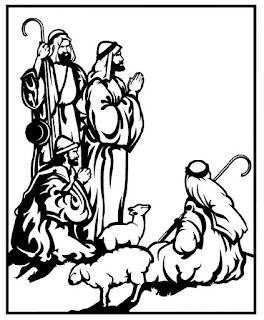This week I sent a woman a research paper I wrote a decade ago about the
various Scriptural basis for women’s complete engagement in the church. In
doing so, I was reminded about the function of pastors in a church.
In the Bible, the
terms “elder”, “pastor”, and “bishop” are used interchangeably referring to the
same function of use in the church (Acts 20:17,28-30; Titus 1:5-9; 1
Peter 5:1-3). The qualifications and work are identical. The purpose of an
elder/pastor/bishop is to teach and mentor younger believers in the faith (1 Tim 3:2; 4:13; 5:17; 2 Tim 3:13-17; 4:2; Titus 1:7, 9; 1 Peter 5:1-2) so that the latter can become fully functioning members of the Kingdom of
God. In this way, every mature believer teaching sound doctrine can be an elder/pastor/bishop
to a younger (less mature) believer. In this way, every Sunday School teacher
(teaching children all the way to adults) is a an elder/pastor/bishop.
Here is a bit of
controversy: elders/pastors/bishops have no authority over other
believers (Matthew 20:25-26; 1 Timothy 2:12; 1 Peter 5:2-3). When in seminary, I used to receive howls of protests
from future pastors when I would make the argument that pastors are not
supposed to have authority over other believers. I would point to the above
Scriptures and several others to no avail. Usually, I would ask them “what
authority do elders/pastors/bishops then have?”
Going back to my
research paper, I noted that women can be elders/pastors/overseers (1 Timonthy
5:2; Titus 2:3), deacons (Romans 16:1; 1 Timothy 3:11), prophets (Exodus 15:20;
Judges 4:4; 2 Kings 22:14; Isaiah 8:3; Luke 2:36), and apostles (Romans 16:7).
Specifically, with
regards to being an elder/pastor/bishop, elder women have the same
responsibility and purpose as their male counterparts: to mentor young
believers in the faith (Titus 2:3-5).
 "Thinking Eternally, Acting Locally." - Neal August
"Thinking Eternally, Acting Locally." - Neal August
No comments:
Post a Comment